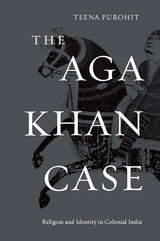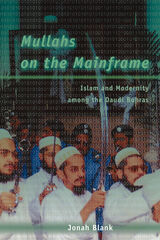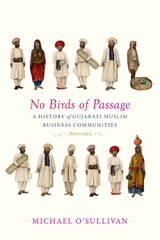
An overwhelmingly Arab-centric perspective dominates the West’s understanding of Islam and leads to a view of this religion as exclusively Middle Eastern and monolithic. Teena Purohit presses for a reorientation that would conceptualize Islam instead as a heterogeneous religion that has found a variety of expressions in local contexts throughout history. The story she tells of an Ismaili community in colonial India illustrates how much more complex Muslim identity is, and always has been, than the media would have us believe.
The Aga Khan Case focuses on a nineteenth-century court case in Bombay that influenced how religious identity was defined in India and subsequently the British Empire. The case arose when a group of Indians known as the Khojas refused to pay tithes to the Aga Khan, a Persian nobleman and hereditary spiritual leader of the Ismailis. The Khojas abided by both Hindu and Muslim customs and did not identify with a single religion prior to the court’s ruling in 1866, when the judge declared them to be converts to Ismaili Islam beholden to the Aga Khan.
In her analysis of the ginans, the religious texts of the Khojas that formed the basis of the judge’s decision, Purohit reveals that the religious practices they describe are not derivations of a Middle Eastern Islam but manifestations of a local vernacular one. Purohit suggests that only when we understand Islam as inseparable from the specific cultural milieus in which it flourishes do we fully grasp the meaning of this global religion.


A sweeping account of three Gujarati Muslim trading communities, whose commercial success over nearly two centuries sheds new light on the history of capitalism, Islam, and empire in South Asia.
During the nineteenth century, three Gujarati Muslim commercial castes—the Bohras, Khojas, and Memons—came to dominate Muslim business in South Asia. Although these communities constitute less than 1 percent of South Asia’s Muslim population, they are still disproportionately represented among the region’s leading Muslim-owned firms today. In No Birds of Passage, Michael O’Sullivan argues that the conditions enabling their success have never been understood, thanks to stereotypes—embraced equally by colonial administrators and Muslim commentators—that estrange them from their religious identity. Yet while long viewed as Hindus in all but name, or as “Westernized” Muslims who embraced colonial institutions, these groups in fact entwined economic prerogatives and religious belief in a distinctive form of Muslim capitalism.
Following entrepreneurial firms from Gujarat to the Hijaz, Hong Kong, Mombasa, Rangoon, and beyond, O’Sullivan reveals the importance of kinship networks, private property, and religious obligation to their business endeavors. This paradigm of Muslim capitalism found its highest expression in the jamaats, the central caste institutions of each community, which combined South Asian, Islamicate, and European traditions of corporate life. The jamaats also played an essential role in negotiating the position of all three groups in relation to British authorities and Indian Muslim nationalists, as well as the often-sharp divisions within the castes themselves.
O’Sullivan’s account sheds light on Gujarati Muslim economic life from the dawn of colonial hegemony in India to the crisis of the postcolonial state, and provides fascinating insights into the broader effects of capitalist enterprise on Muslim experience in modern South Asia.
READERS
Browse our collection.
PUBLISHERS
See BiblioVault's publisher services.
STUDENT SERVICES
Files for college accessibility offices.
UChicago Accessibility Resources
home | accessibility | search | about | contact us
BiblioVault ® 2001 - 2024
The University of Chicago Press









